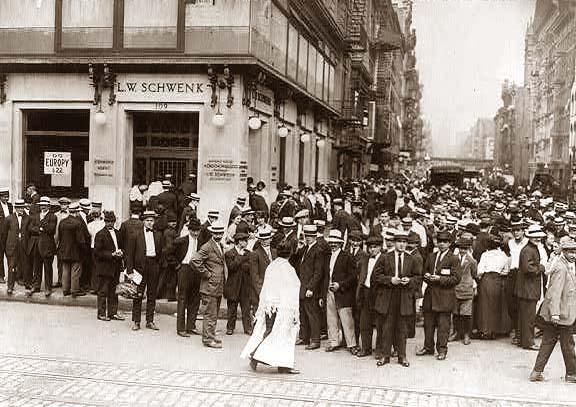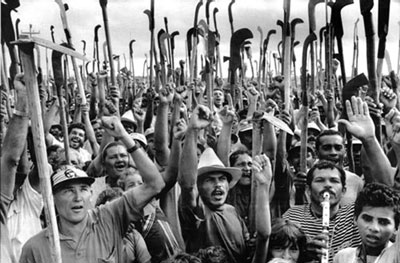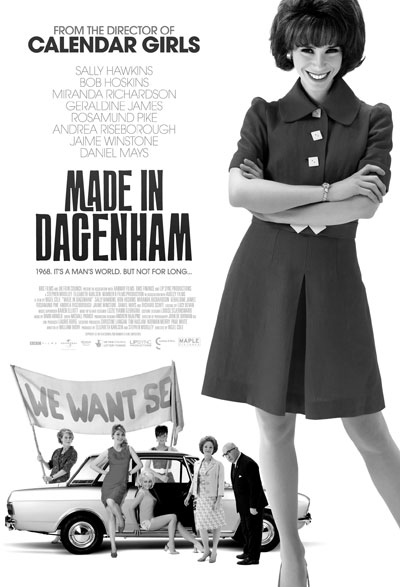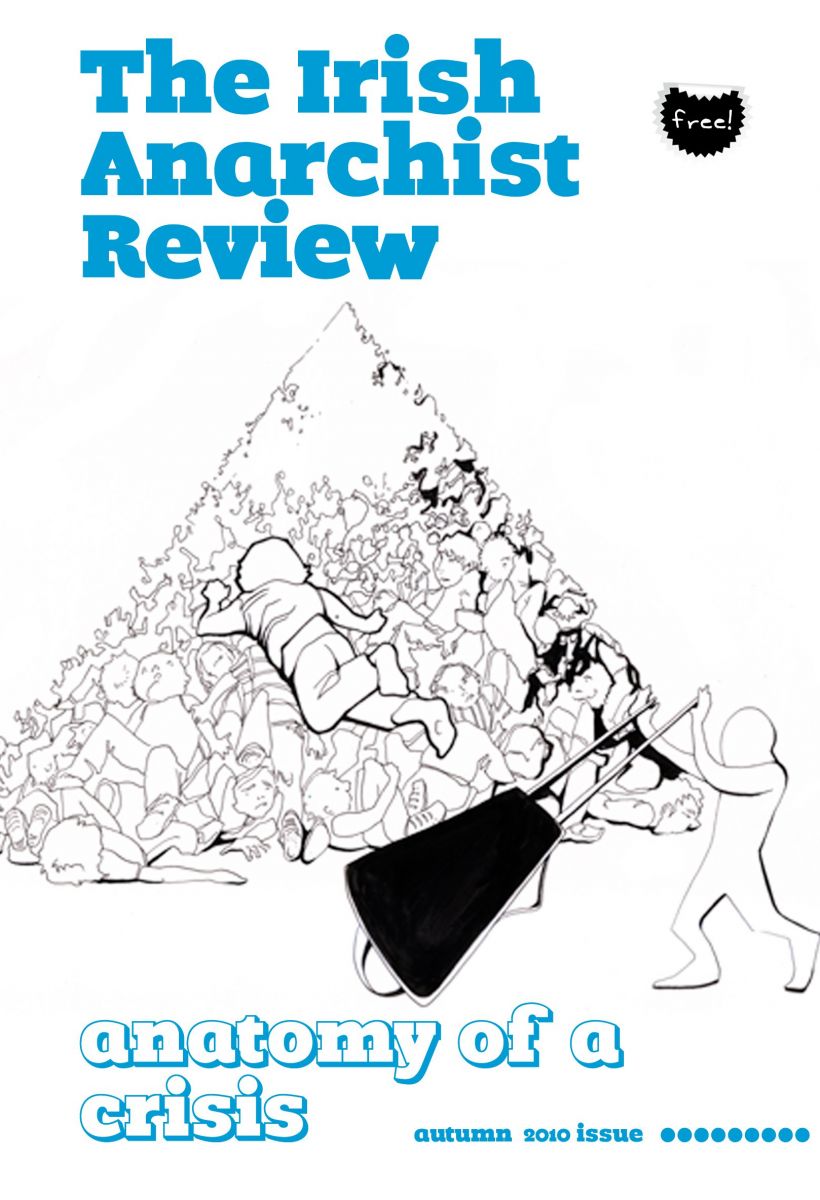Over 30 years of anarchist writing from Ireland listed under hundreds of topics
International
Solidarity with the Irish people demonstration called in Paris for tomorrow
Anarkismo.net has announced that a demonstration is being held in Paris, France tomorrow to coincide with the ICTU demonstration in Dublin under the slogan of 'Solidarity with the Irish people'. The demonstrations called by 8 French organisations will be taking place at the European Union offices of bld Saint Germain, the organisers include the WSM's sister Anarkismo group in France, Alternative Libertaire.
Is causing a Run on the Banks really a strategy that makes sense?
 Eric Cantona, French actor and former footballer, has recently been calling for a run on the banks. The idea is that the bankers generated this crisis and since our democratic institutions are either incapable or unwilling to hold the bankers accountable, we should take matters into our own hands.
Eric Cantona, French actor and former footballer, has recently been calling for a run on the banks. The idea is that the bankers generated this crisis and since our democratic institutions are either incapable or unwilling to hold the bankers accountable, we should take matters into our own hands.
Thinking About Anarchism: Dual Organisation
The society we live in is a long way off the kind of society that anarchists advocate. So the question that anyone interested in creating a better society has to answer is: how best to act for positive change? The question of how anarchists should organise is one that has been debated over and over. It is clear that anarchism, rooted in ideals of equality, freedom and democracy, needs to adopt organisational practices which foster rather than stifle these ideals.
Sacking of Socialist Nurse Overturned
 Yunus Bakhsh, a psychiatric nurse from the north east of England has won a four year battle against his bosses. Sadly his union, the public service giant UNISON, was about as much use as a tailor in a nudist camp. This should be of interest to the 39,000 workers in Northern Ireland who are in Unison.
Yunus Bakhsh, a psychiatric nurse from the north east of England has won a four year battle against his bosses. Sadly his union, the public service giant UNISON, was about as much use as a tailor in a nudist camp. This should be of interest to the 39,000 workers in Northern Ireland who are in Unison.
Yunus had a 23-year spotless record in nursing. What annoyed his employer, the local NHS trust, was his union activity and radical views. He was the union branch secretary and also a member of the Socialist Workers Party (SWP).
Democracy in Brazil - Workers Party suppresses anarchists
 As this issue of Workers Solidarity goes to print, Brazil is about to elect a new president. After eight years, the Workers’ Party (PT) incumbent, Lula, must step down. His chosen successor, Dilma Roussef, is poised to become Brazil’s first female president, as she holds a 46.9% to 32.6% lead over her closest rival after the first round of voting. Roussef is a former urban guerrilla who was tortured by the western-backed military dictatorship (1964-1985) before throwing her lot in with electoral politics, joining the PT in 2000.
As this issue of Workers Solidarity goes to print, Brazil is about to elect a new president. After eight years, the Workers’ Party (PT) incumbent, Lula, must step down. His chosen successor, Dilma Roussef, is poised to become Brazil’s first female president, as she holds a 46.9% to 32.6% lead over her closest rival after the first round of voting. Roussef is a former urban guerrilla who was tortured by the western-backed military dictatorship (1964-1985) before throwing her lot in with electoral politics, joining the PT in 2000.
Film Review: Made in Dagenham
 If you like ‘feel good’ films this is for you. Leaving a cinema feeling both entertained and optimistic is rare enough, and this film scores highly on both points.
If you like ‘feel good’ films this is for you. Leaving a cinema feeling both entertained and optimistic is rare enough, and this film scores highly on both points.
In 1968 there were 55,000 working at Ford’s massive plant in east London. One of them is machinist Rita O’Grady, who makes seat covers with 156 other women at the Dagenham factory. Thinking that women won’t cause trouble, management regrades them as ‘unskilled’.
That's Capitalism! Tax dodging with pensions and other stories
 Last year the Exchequer lost €7.4bn as a result of the tax break regime, over three times the EU average. According to the government’s own Economic and Social Research Institute, 80% of the tax relief available on pension contributions goes to the wealthiest 20% of earners.
Last year the Exchequer lost €7.4bn as a result of the tax break regime, over three times the EU average. According to the government’s own Economic and Social Research Institute, 80% of the tax relief available on pension contributions goes to the wealthiest 20% of earners.
The 10/10 Event: Origins of an Economic Meltdown

The purpose of this text is to try and tell the story of our current economic situation, how we got here, and what we can expect from the near future, so as to better understand the tasks facing us.
This is neither an academic text on history, nor yet, god forbid, a treatise on macroeconomics. So in the interests of telling a listenable story we will use the old storytelling technique of jumping directly into the middle and exploring outwards in flashback and flash-forward vignettes to build the big picture. But where is the middle?
Irish Anarchist Review No 2
 The Workers Solidarity Movement is very pleased to announce the second issue of The Irish Anarchist Review. This magazine is dedicated to understanding the contemporary political, economic and social situation that confronts us, and finding ways to advance alternatives.
The Workers Solidarity Movement is very pleased to announce the second issue of The Irish Anarchist Review. This magazine is dedicated to understanding the contemporary political, economic and social situation that confronts us, and finding ways to advance alternatives.
Download The Irish Anarchist Review Issue 2
Our first issue was released in the aftermath of major strikes across the public sector. Despite decades of partnership, a deflated union movement and an intense barrage of media bile, Irish workers showed their willingness to take to picket lines to fight the Government.
Now, however, we can see that the union leadership were not willing to fight - they quickly demobilised strike action to return to the bargaining table, squeezing out a disgraceful deal in Croke Park negotiations. Now, without opposition, the Government calmly talks of four-years of ‘hair-shirt’ budgets to restore the national finances.
The Chilean miners: fake solidarity in the land of "every man for himself"
Like millions of others, I was absolutely delighted to see the trapped miners in the San José mine in Chile getting out alive from their stressful, claustrophobic confinement which they'd been in for almost 70 days as a result of negligence on the part of the mining companies. I could only be thrilled to see this terrible story of grief and suffering come to a happy ending and see tears exchanged for bursts of laughter. But at the same time, mixed with my joy at seeing these 33 condemned men return to life, I still had a feeling that was a mixture of revulsion and anger at the show put on by the very people who had dug what could have been these men's graves. I have no wish to be a killjoy, but when the natural euphoria that has engulfed the country calms down, a great many questions will need to be asked.

